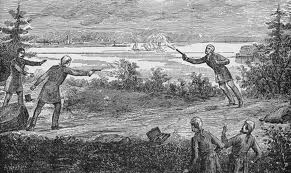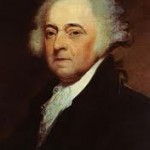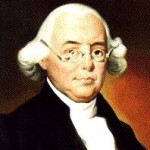Wednesday marked the 208th anniversary of the duel between Vice President Aaron Burr and Alexander Hamilton, former Secretary of the Treasury. In the dawn hours, each traveled to a lonesome outcropping of New Jersey’s Palisades to try to kill each other in a savage ritual.
Burr succeeded, dispatching his long-time nemesis with a pistol shot to the torso, but Hamilton’s death destroyed Burr’s political career. New York and New Jersey indicted the vice president for murder. Though Burr never faced those charges, in 1807 he was tried for treason for leading an expedition of military adventurers in America’s then-Western lands.
Burr won acquittal in the treason case, but the spectacle of the nation’s second-highest-ranking official launching a one-man crime wave should help correct a malady that flares with particular virulence during political campaign seasons: Founders’ Chic.
Many nations cherish myths of larger-than-life figures who serve as models of courage, wisdom, and virtue: King Arthur for the British, Roland in France, and El Cid in Spain.
For Americans, with a relatively short national history, the Founders – George Washington, Benjamin Franklin, Thomas Jefferson, Hamilton – serve that vital role. In opposing the health insurance reforms of the Affordable Care Act, Governor Mitt Romney announced that he preferred “a course that the founders envisioned.”
“The President is moving us away from our Founders’ vision,” he warned in a speech in April that espoused “limited government.”
Nor is President Obama immune to Founders’ Chic. In a ceremony in March, he dutifully honored “the noble vision of our nation’s founders.”
For a writer of histories, Founders’ Chic is a godsend. As a citizen, though, I would prefer fewer misleading invocations of figures who were fascinating and important but often not heroic.
Of the Founding Generation, only Burr faced both murder and treason prosecutions. Nevertheless, most of his contemporaries engaged in conduct that would swiftly disqualify them from public life today.
Start with Franklin. His son, William, was born before Franklin’s marriage to Deborah Read, a union often described as common-law. When diplomatic service in London separated Franklin from Deborah for many years, he moved in with Polly Stevenson. One of his enduring writings, “Advice to a Friend on Choosing a Mistress,” extols the virtues of the more experienced woman. Franklin thus epitomized family values of a certain sort.
While Treasury Secretary, the dashing Hamilton conducted a year-long affair with Maria Reynolds that involved paying hush money to her husband. When the affair was disclosed, Hamilton wrote a lengthy pamphlet admitting the affair but denying any betrayal of public trust.
John Adams’ quarrelsome nature led him to spend much of his presidency at home in Massachusetts, far from congressmen and Cabinet members he detested – and from his responsibilities.
Mounting evidence indicates that Jefferson fathered several children with Sally Hemings, one of his slaves. Those children were the only slaves freed by the drafter of the Declaration of Independence.
Slave-owning was the abiding sin of Southern Founders. Washington was a stern master who advised overseers not to spare discipline for recalcitrant slave workers. Jefferson and James Madison owned and sold scores of human beings. They were not blind to their own hypocrisy. “Where slavery exists,” Madison wrote with a chilly detachment, “the republican theory becomes still more fallacious.”
But emancipation was a financial sacrifice that few made. Only Washington directed that his slaves be freed after his death, and the death of his wife.
Greed led several Founders to ruin. Supreme Court Justice James Wilson gambled on land speculations and lost. After a spell in
debtors’ jail, he fled his creditors and long prison sentences in several states. He died in a form of exile in North Carolina. Robert Morris, the wizard who steered the nation’s precarious finances through the Revolutionary War, also lost everything in land speculation, landing in debtors’ prison.
Depression led the second chief justice of the United States, John Rutledge, to attempt suicide by drowning.
They were flesh and blood, sometimes randy, occasionally violent, often self-interested, and subject to the blunders humans make. Their stories are compelling and even instructive.
But definitely not perfect.


